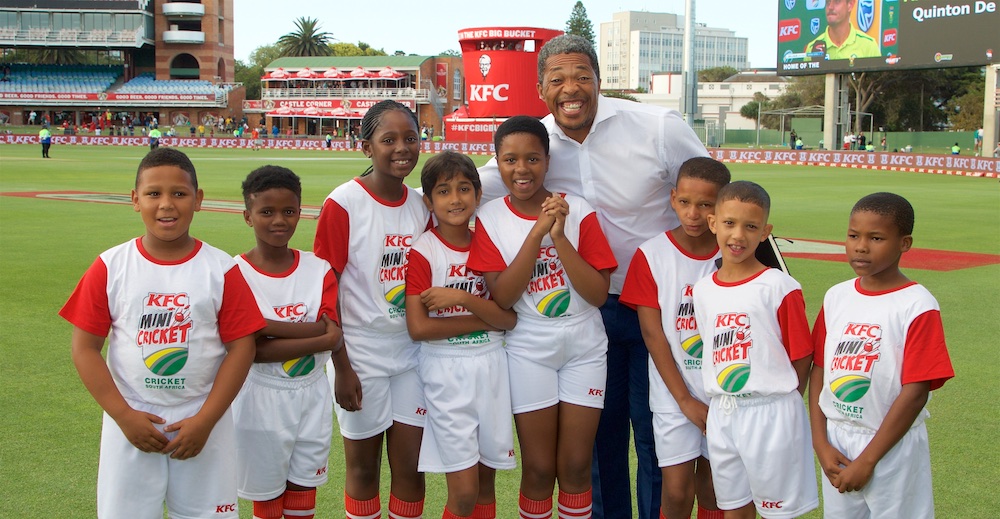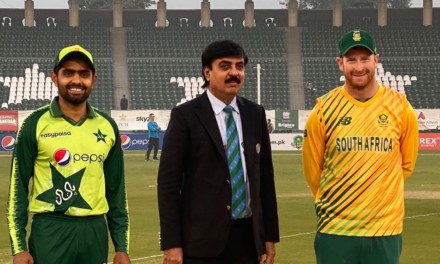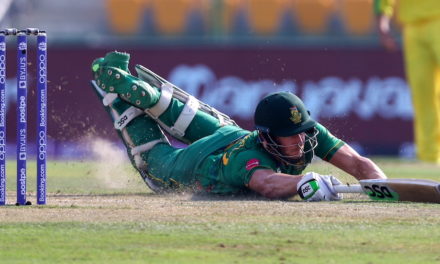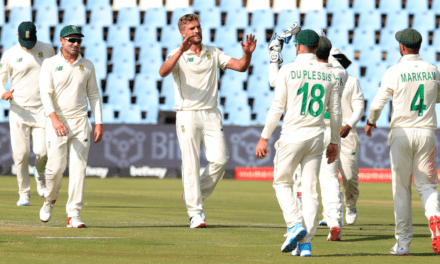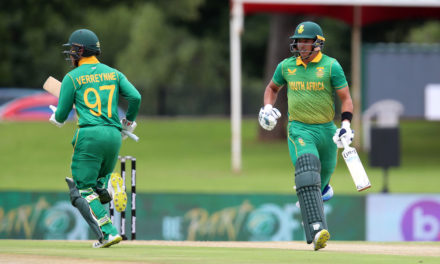The future and prosperity of South African cricket lie in the hands of the school system, where transformation should start, writes Obakeng Meletse.
It was only some 28 years back when a young black African boy was discovered by two Border Cricket Board Officers, Raymond Booi and Greg Hayes.
Through a mini cricket programme, a star was born. At 15 years of age, Makhaya Ntini caught both scout’s eyes and though barefoot at the time he had big shoes to fill. Both scouts knew then that they had a lot to work with and it took only 2 years until he made the SA-U19 team to tour England.
Today Makhaya has accomplished a lot and was the first black African to show that it’s possible.
“A story must be told or there’ll be no story, yet it is the untold stories that are the most moving “ – JRR Tolkien.
Cricket in South Africa and the African ethnicity needed the story of Makhaya, every child from any village or rural area, now knows that they can write their own story and the inspiration behind that is seeing that circumstances don’t determine your journey but only you have the key to every door, how you use them is up to you.
It’s been 28 years, and how far have we come? Would we say from the discovery of Makhaya until now, there’s been more done to broaden the search of talent through such places to improve the numbers that come through?
Do we have enough boys and girls playing cricket in rural schools and have them moving through the pipelines or is everyone still hoping for the best?
Primary school is the foundation for every kid, and often they would be asked what they want to be when they grow up. Some will say they want to be doctors because their neighbour is a doctor and they are inspired by the changes they make in people’s lives.
Some will say they want to be police officers because they grew up in a house with a father as a police officer. Some will say they want to be football stars because of a star they look up to from television.
There will also be one that has seen Kagiso Rabada doing his magic on television and wants to follow in his footsteps. Doctors and policemen or women are only required to go to school and do what’s necessary to succeed.
Football is played in every corner and ground all over the country, reality has it that with cricket it’s much more complex and some dreams die before they even begin and most of it is due to access.
Traditionally in South Africa, there are your top schools that have always given plenty of talent before and are sort of always expected to produce special players because of the history and the quality of players they have produced before.
Be that as it may, to get more out of transformation this trend needs to improve, and it’s not that Cricket South Africa needs to start changing everything but rather learn from the success of others and implement some of the strategies into their plans to get kids playing the game and mini cricket can be just the start for most schools.
There is a lot of power that lies in the mini cricket programs and for some kids, it’s during that exact moment when they decide that one day they also want to be great batsmen and bowlers, and with a country that is trying to push for transformation, why not start now and totally focus your energy on schools and not just wait for your top class schools to produce more talent but have as many schools as possible developing the disadvantaged areas at the same time.
Living in the western area, west of Johannesburg, I grew up with no school cricket, no bakers or KFC mini cricket, and I can count more than 50 rural primary schools that have zero cricket being played even to this day. One wonders if this is happening just outside Johannesburg or how far do we still have to go as a country?
Children have so much time on their hands that they even end up doing things they are not supposed to be doing.
We live in such a diverse country and we are currently facing division amongst our people. People are against racial quotas because they just don’t understand why certain players are fast-tracked or have to make up a certain percentage of the team, deserving or not, we often see players of colour always having to prove themselves over and over again every time they step on to the field of play, how fair is that?
To one person it’s an opportunity to showcase your talent but to the other, they feel an opportunity is taken away from them.
How do you find a balance? Is school cricket the answer and not just the answer but a long term solution?
No player would ever want to be done a favour and be picked for anything else other than merit, it is more satisfactory to you as an athlete to know you belong and are there because of your hard work and nothing else.
Sometimes you just won’t understand, because to understand you would have to go through it. Only the brave make it and making it is just the beginning as all that matters is how you survive.
By looking deep enough, by giving everyone a fair shot, if we search through every town, suburb, rural area and village, we will have enough pool of talent to choose from.
Most importantly kids will get the opportunity to play the game and choose their own paths from thereon.
Photo: Supplied/Shawn Belluigi/Richard Huggard/Gallo Images

